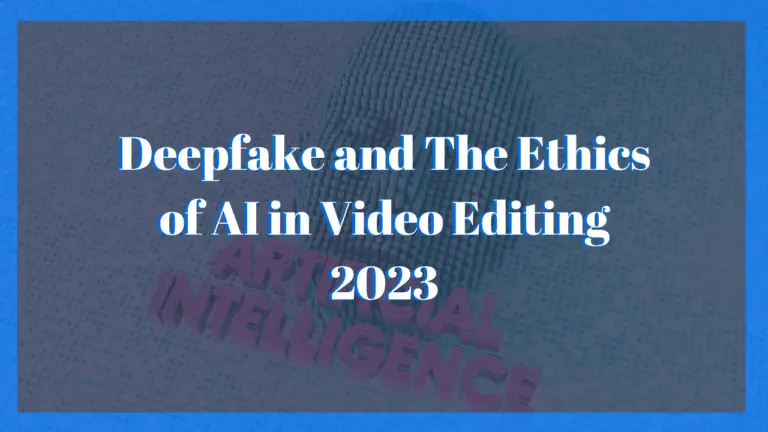Your 2023 Guide to Becoming a ChatGPT4 Prompt Engineer.

Introduction
As someone who’s always been captivated by the marvels of technology, my fascination has grown exponentially with the rapid advancements in artificial intelligence. I can’t help but be amazed by the recent progress in natural language processing (NLP). Remember when our virtual assistants could hardly understand basic voice commands? We’ve come a long way since then, thanks to the remarkable developments in natural language processing and the generation of machine learning models.
Now, we have awe-inspiring AI like ChatGPT, which is revolutionizing how we understand and process human language. ChatGPT has opened up a speech-to-text whole new world of possibilities, and with it, a new generation of tech-savvy professionals has emerged – the prompt engineers.
Picture this: You’re in a room filled with creative minds, dissecting the intricacies of human language and teaching an AI computer program how to comprehend and respond to human speech. It sounds like a sci-fi movie, right? But this is precisely what prompt engineers do, and they’re at the forefront of shaping the future of AI-powered communication.
So, let me be your guide (with a sprinkle of humor, naturally) as we embark on an exciting journey to discover the exhilarating universe of ChatGPT prompt engineering in 2023. Together, we’ll explore what it takes to become a prompt engineer, the skills you’ll need, and how you can play a pivotal role in the ever-growing landscape of AI and other NLP technology. And who knows, by the end of this adventure, you might find yourself inspired to join the ranks of these linguistic trailblazers!
What is a ChatGPT Prompt Engineer?
A ChatGPT prompt engineer is akin to a superhero in AI, wielding the power of natural language understanding and computational linguistics to create a more intelligent and human-like AI. These extraordinary individuals are responsible for designing and implementing creative prompts that train the ChatGPT model, diving deep into machine learning methods, natural language using models, and NLP techniques.
As the skilled puppeteers of human language, prompt engineers manipulate large volumes of text and speech data to craft prompts that challenge and enhance the ChatGPT’s abilities, ensuring it becomes increasingly proficient at handling complex tasks. From sentence structure to sentiment analysis to machine translation, these AI maestros have their hands complete with many intricate NLP tasks to refine the AI’s comprehension of our diverse and nuanced languages.
Remember when I tried teaching my grandma how to use a smartphone? It was quite the adventure, filled with frustration and laughter as we navigated the intricacies of modern technology. Becoming a prompt engineer shares some similarities with that experience, except, in this case, you’re imparting the wisdom of human communication to an AI model. Imagine unraveling the mysteries of human languages, breaking down complex patterns and usage exceptions to make AI more adept at understanding and processing our words and thoughts.
It’s a challenging yet rewarding mission. Your expertise in machine learning models, NLP training data sets, tasks, and even the subtle art of humor can create an AI capable of genuinely engaging with us on a human level. So, as you embark on this journey to become a ChatGPT prompt engineer, remember that you’re not just teaching an AI about human language but also bridging the gap between artificial intelligence and human communication.
Essential Skills for ChatGPT Prompt Engineers
Technical skills
Programming languages and frameworks: Familiarity with languages like Python, TensorFlow, and PyTorch can be helpful when working with machine learning models and NLP tasks.
Understanding of machine learning and AI: A firm grasp of machine learning approaches, deep learning models, and reinforcement learning is crucial for prompt engineering.
Soft skills
Creativity and problem-solving: Designing creative prompts requires a creative mindset and the ability to recognize patterns in text and speech data.
Communication and teamwork: A prompt engineer must collaborate with other experts in the field, such as computational linguists and data scientists, to build efficient and accurate models.
The journey of a prompt engineer is filled with its fair share of “Eureka!” moments as they discover new ways to enhance the training process by fine-tuning input training data or experimenting with innovative machine-learning algorithms to manipulate human language. These breakthroughs often lead to remarkable improvements in the AI’s performance, making it more adept at understanding and responding to human language.
However, the path to success comes with its fair share of comical hiccups. For instance, one might recall the story of a prompt engineer who accidentally used the wrong sample voice data for a language model during the training process. This unintentional mishap led to the model conversing in Shakespeare’s eloquent yet antiquated style. While this might not have been the desired outcome, it certainly provided a moment of fun and an opportunity to learn from the mistake.
Such amusing incidents remind us that the road to mastery in ChatGPT prompt engineering is paved with success and occasional missteps. However, as fast engineers progress, they refine their skills, deepen their understanding of natural language processing techniques, and develop a sense of humor and humility that comes from recognizing the unpredictable nature of AI and human and natural language processing.
Educational Background and Experience

While having a degree in computer science, computational linguistics, or a related field of computer science can provide the training set a solid foundation for aspiring ChatGPT prompt engineers, it’s not the only route to success in this dynamic field. The ever-evolving landscape of natural language processing and machine learning offers multiple pathways for individuals with diverse backgrounds and skill sets.
One alternative is obtaining certifications in NLP techniques, machine learning algorithms, or deep learning models. These specialized computer programs allow you to gain in-depth knowledge of critical concepts, such as natural language understanding, text and entity, speech recognition, speech data processing, and machine learning models in various NLP tasks. By equipping yourself with these skills, you’ll be better prepared to tackle the challenges of training and fine-tuning AI like ChatGPT.
Real-world experience is invaluable when it comes to breaking into ChatGPT prompt engineering. Internships at companies working on cutting-edge AI projects or collaborating on open-source NLP initiatives provide practical exposure to the intricacies of the training process and machine learning methods. These experiences can help you gain insights into different machine learning model re-learning approaches, natural language generation using models, and the application of statistical methods in natural language generation and understanding.
In addition to these avenues, staying abreast of advancements in reinforcement learning, unsupervised learning, and other AI research areas can further enhance your expertise as a prompt engineer. Engaging with the AI community through conferences, workshops, and online forums can also help you build connections and learn from the experiences of other professionals in the field.
Ultimately, the path to becoming a ChatGPT prompt engineer is a blend of formal education, hands-on experience, and a passion for exploring the ever-growing world of artificial intelligence. By pursuing certifications, gaining real-world experience, and staying current with the latest trends and technologies, you’ll be well-equipped to contribute to the exciting future of natural language processing and machine learning.
Tips for Landing a Job as a ChatGPT Prompt Engineer

Building a strong portfolio
To effectively showcase your skills in natural language processing NLP) tasks, machine learning models, and deep learning techniques creating a comprehensive portfolio that highlights your accomplishments and expertise is essential. In addition, you can demonstrate your proficiency in natural language processing by including diverse projects in areas like sentiment analysis, human text, machine translation input data mining, and speech recognition.
Sentiment Analysis:
Share a project where you’ve employed machine learning algorithms to analyze text data and determine the sentiment expressed within the content. For example, you could create a project that extracts tweets about a specific topic or product and assesses public opinion. This would demonstrate your ability to process unstructured data, apply NLP techniques, and derive actionable insights from the results.
Machine Translation:
Present a project where you’ve developed a machine translation system using deep learning models or other machine learning methods. For instance, you could create an automatic translation tool that converts text between two languages, showcasing your knowledge of language models, neural information processing systems, and the complexities of human languages.
Speech Recognition:
Highlight a project that involves developing a speech recognition system capable of converting voice data into text. This could be an application that transcribes audio recordings, understands voice commands, or performs speech-to-text conversion for various purposes. You can demonstrate your expertise in this challenging NLP domain by showcasing your skills in handling voice data and implementing machine learning models for speech recognition.
Entity Recognition:
Include a project that extracts relevant entities from unstructured text data, such as names, dates, and locations. By showcasing your proficiency in employing NLP methods like part of speech tagging and entity extraction, you can illustrate your ability to process large volumes of information and extract meaningful insights.
Document Summarization:
Share a project where you’ve developed a system automatically generating concise summaries of lengthy documents or articles. This would demonstrate your understanding of semantic analysis, NLP techniques, and the challenges of condensing complex information into an easily digestible format.
By presenting a diverse range of projects specific tasks in your portfolio, you can effectively demonstrate your proficiency in various NLP tasks, machine learning models, and deep learning techniques. In addition, this will help you establish credibility as a ChatGPT prompt engineer and showcase your ability to contribute to various AI applications.
Networking and industry events
Participating in networking events and attending industry conferences are crucial for staying up-to-date with the latest natural language processing, machine learning, and AI research developments. In addition, these events provide an opportunity to meet fellow professionals, exchange ideas, and learn about cutting-edge technologies, methods, and tools.
Conferences:
Events like Neural Information Processing Systems (NIPS) and the Conference on Empirical Methods in Natural Language Processing (EMNLP) bring together researchers, academics, and industry professionals worldwide. Attending these conferences exposes you to the latest research in NLP, machine learning, and deep learning models. Additionally, you can attend workshops and tutorials that provide hands-on experience with new NLP techniques and tools.
Meetups and Local Events:
Participating in local AI and NLP meetups, such as those organized by Machine Learning Tokyo or the London Machine Learning Meetup, can help you connect with like-minded individuals, expand your professional network, and learn about regional job opportunities. In addition, these events often feature talks from industry experts, providing valuable insights into emerging trends and best practices.
Online Communities:
Engaging with the AI community on social media platforms like Twitter, LinkedIn, and Reddit enables you to stay informed about the latest developments in the field, learn from experts, and discover job openings. In addition, you can gain insights into NLP tools, techniques, and industry news by following influential AI researchers, engineers, and organizations.
Webinars and Online Courses:
Participating in webinars and enrolling in online courses offered by universities or platforms like Coursera and Udacity can help you deepen your understanding of NLP and machine learning. In addition, these courses often provide access to forums to discuss topics with fellow learners and instructors, further expanding your professional network.
Collaborative Projects:
Contributing to open-source projects related to NLP and machine learning, such as Hugging Face’s Transformers or spaCy, can help you connect with other developers and researchers. By working together on projects, you can learn from experienced professionals, gain practical experience, and demonstrate your skills to potential employers.
By actively participating in networking and industry events, you can stay abreast of the latest NLP tools, machine learning, and AI advancements while building valuable connections that can open doors to new career opportunities in ChatGPT prompt engineering beyond.
Preparing for interviews
Becoming a successful ChatGPT prompt engineer requires a blend of technical expertise, creativity, and a dash of humor. When preparing for interviews, brushing up on your knowledge of NLP methods, machine learning technology, training data, and computational linguistics is essential. In addition, preparing for quirky questions that showcase your humor and creativity can make a lasting impression on interviewers. Here are some additional tips for acing your prompt engineer interview:
Review Fundamentals:
Make sure you’re well-versed in the basics of NLP tasks, such as sentiment analysis, entity recognition, and part of speech tagging. Be prepared to discuss your experience with machine learning models, deep learning techniques, and various approaches to handling text and speech data.
Showcase Your Portfolio:
Be ready to discuss the projects you’ve completed, emphasizing the challenges you faced and the solutions you implemented. Highlight your different NLP techniques and machine learning algorithms, and explain their impact on the project outcomes.
Practice Problem-Solving:
Anticipate technical questions or exercises that test your problem-solving skills. Practice by working through NLP and machine learning problems or brainstorming creative prompts for training AI models. This preparation will help you feel more confident and think on your feet during the interview.
Be Prepared for Behavioral Questions:
Interviewers may ask about your teamwork, communication, and time management skills. Reflect on your past experiences and develop specific examples that showcase your strengths in these areas.
Research the Company:
Familiarize yourself with the company’s work, AI products, and recent news or accomplishments. This will show that you’re genuinely interested in the company and clearly understand its goals and values.
Don’t Forget the Fun:
As a ChatGPT prompt engineer, your creativity and humor are valuable assets. Be ready for quirky questions or prompts that allow you to showcase your wit and imagination. Then, like the “robot falling in love with a toaster” example, develop entertaining ideas demonstrating your ability to think outside the box and create engaging prompts.
Practice Mock Interviews:
Enlist the help of a friend or family member to conduct mock interviews, asking technical and quirky questions. This will help you become more comfortable with the interview process, refine your answers, and practice thinking on your feet.
By thoroughly preparing for interviews and focusing on technical expertise and creativity, you can confidently showcase your skills and unique perspective as a ChatGPT prompt engineer, increasing your chances of landing the perfect job in this exciting field.
The Future of ChatGPT Prompt Engineering
Emerging trends and technologies
As AI advances rapidly, new techniques and technologies emerge that push the boundaries of what is possible in the field. For aspiring ChatGPT prompt engineers, staying informed about these developments is essential for maintaining a competitive edge. Here are some specific areas to watch out for:
Unsupervised Learning:
Unsupervised Machine learning algorithms allow AI models to learn from unstructured data without labeled training examples. This approach is needed for NLP tasks where obtaining large volumes of labeled data is difficult or expensive. Using unsupervised learning techniques, AI models can discover hidden patterns and structures in text data, improving sentiment analysis, document summarization, and topic modeling performance.
Reinforcement Learning:
Reinforcement learning (RL) is a type of machine learning in which an AI agent learns by interacting with its environment and receiving feedback in the form of rewards or penalties. RL has shown promise in various NLP tasks, such as dialog systems and machine translation. By incorporating reinforcement learning techniques, ChatGPT prompt engineers can potentially improve the model’s ability to generate more contextually relevant and coherent responses.
Advanced NLP Algorithms:
Researchers continually develop more sophisticated NLP algorithms to tackle complex tasks like co-reference resolution and entity extraction. Co-reference resolution involves identifying when different words or phrases in a text refer to the same entity. In contrast, entity extraction involves identifying and classifying entities such as people, organizations, and locations in unstructured text. By staying informed about these advanced NLP algorithms, prompt engineers can leverage cutting-edge techniques to enhance the capabilities of ChatGPT.
Multimodal Learning:
AI models that can process and understand multiple modalities, such as text, images, and audio, are becoming increasingly important in the age of social media and multimedia content. By integrating multimodal learning into NLP models, prompt engineers can create AI systems capable of understanding and generating content that combines text, images, and audio, paving the way for more engaging and immersive conversational experiences.
Transfer Learning and Pre-trained Models:
Using pre-trained models and transfer learning techniques has revolutionized NLP recently. Models like BERT, GPT, and RoBERTa have demonstrated remarkable performance across various NLP tasks. By staying up-to-date with the latest advancements in pre-trained models and transfer learning techniques, prompt engineers can make the most of these powerful tools to enhance the capabilities of ChatGPT.
By keeping an eye on these emerging trends and technologies, ChatGPT prompt engineers can stay ahead of the curve and contribute to developing more advanced, capable, and engaging AI models that push the limits of natural language understanding and generation.
The Impact of GPT-4 on the Field
The emergence of GPT-4, the latest iteration of the groundbreaking language model, can potentially revolutionize the field of natural language processing (NLP) even further. Its increased complexity and efficiency can unlock new possibilities in various applications, pushing the boundaries of what AI can achieve in understanding and generating human language. Here are some specific areas where GPT-4 is expected to make a significant impact:
Virtual Assistants:
The advancements in GPT-4 can lead to more intelligent and versatile virtual assistants capable of understanding complex queries and generating more accurate, contextually relevant responses. This will enable users to interact with virtual assistants more naturally and efficiently, making them indispensable tools for scheduling, information retrieval, and customer support.
Social Media Analytics:
As social media platforms continue to generate massive volumes of text, image, and video data, the need for advanced NLP tools to process and analyze this content grows. GPT-4’s increased complexity and efficiency can enable more accurate sentiment analysis, trend detection, and content moderation, allowing businesses to glean actionable insights from social media data and make more informed decisions.
Document Summarization:
The ability to automatically generate concise and accurate summaries of lengthy documents is invaluable in industries like law, finance, and journalism, where professionals must quickly process large volumes of text. GPT-4’s improved capabilities can lead to more effective document summarization techniques, saving time and resources while ensuring the most critical information is captured and presented clearly.
Personalized Content Generation:
GPT-4’s enhanced understanding of human language can open new doors in personalized content generation, enabling AI models to create tailored content that appeals to individual preferences and interests. This can have significant implications for industries like marketing, e-commerce, and entertainment, where personalization is crucial for capturing user attention and driving engagement.
Advanced Conversational AI:
GPT-4’s increased complexity can contribute to developing more advanced conversational AI systems that engage in dynamic, context-aware, and emotionally intelligent user interactions. This can lead to AI models that provide more meaningful and personalized experiences in areas like mental health support, education, and customer service.
Multilingual AI:
With its improved efficiency and understanding of human language, GPT-4 can potentially enable more sophisticated multilingual AI models. These models can understand and generate content in multiple languages, breaking down language barriers and facilitating seamless communication and collaboration across cultures.
As GPT-4 continues to reshape the landscape of natural language processing, NLP, and AI, the possibilities for more advanced and sophisticated applications are virtually limitless. Aspiring ChatGPT prompt engineers can capitalize on these advancements to create innovative, engaging, and impactful AI models that genuinely understand and generate human language in ways we’ve never seen before.
Opportunities for growth and advancement
As a ChatGPT prompt engineer, the dynamic nature of the AI and NLP technology fields offers numerous opportunities for growth and advancement. Fast Engineers can expand their expertise and explore various fascinating niches by continuously learning and refining their skills. Here are some areas where Prompt Engineers can specialize and excel, along with real-world examples and sources of information:
Word Sense Disambiguation:
This advanced NLP task involves determining the correct meaning of a word when it has multiple implications based on the context. For instance, “bank” can refer to a financial institution or a riverbank. A prompt engineer specializing in this area can contribute to developing more accurate and context-aware AI models. The SemEval workshop series (https://semeval.github.io/) offers tasks and challenges focusing on word sense disambiguation, allowing engineers to test their skills and learn from cutting-edge research.
Part of Speech Tagging:
This fundamental NLP task involves labeling words in a sentence according to their grammatical role (e.g., noun, verb, adjective). A prompt engineer can help improve the AI model’s ability to understand and generate grammatically correct and coherent text by specializing in part of speech tagging. The Universal Dependencies project (https://universaldependencies.org/) provides a wealth of annotated data and resources for part-of-speech tagging across various languages, offering an excellent opportunity for learning and exploration.
Medical Records Analysis:
With the growing importance of AI in healthcare, there is a demand for prompt engineers who can develop AI models that can process and analyze unstructured medical records, including clinical notes and diagnostic reports. By specializing in this area, a prompt engineer can contribute to improving patient care and streamlining healthcare workflows. The Informatics for Integrating Biology and the Bedside (i2b2) initiative (https://www.i2b2.org/) offers challenges and resources for medical NLP tasks, providing a platform for prompt engineers to refine their skills and collaborate with experts in the field.
Sentiment Analysis:
This prevalent NLP task involves determining the sentiment or emotion expressed in a text, which can be helpful for businesses to gauge customer satisfaction and public opinion. A prompt engineer specializing in sentiment analysis can work on projects ranging from social media analytics to product reviews. The Sentiment Analysis Symposium (https://sentimentsymposium.com/) is an annual event that brings together researchers and practitioners to share their work and the latest advancements in sentiment analysis.
Speech-to-Text:
As voice-based interfaces become more prevalent, prompt engineers specializing in speech-to-text can contribute to developing AI models capable of accurately transcribing spoken language into written text. This can be applied in various industries, such as transcription services, voice assistants, and accessibility tools. The INTERSPEECH conference (http://www.interspeech2022.org/) is an annual event covering various speech processing topics, including speech-to-text, offering prompt engineers the opportunity to learn about the latest research and techniques.
By pursuing these specializations and staying updated with the latest advancements, ChatGPT prompt engineers can unlock exciting growth opportunities and contribute to the ongoing evolution of AI and NLP technologies. The potential for exploration and development in these fields is endless, making it an exhilarating career path for those passionate about natural language understanding and generation.
In terms of income:
A ChatGPT prompt engineer can expect competitive compensation, reflecting the growing demand for skilled professionals in this domain. According to Glassdoor, the average annual salary for a machine learning engineer in the United States is around $114,000, with higher wages for those with more experience and specialized skills (source: https://www.glassdoor.com/Salaries/machine-learning-engineer-salary-SRCH_KO0,24.htm). As a prompt engineer working with advanced AI like ChatGPT, you can expect a salary within a similar range or even higher, depending on your expertise and specific industry.
Moreover, as AI and NLP technologies continue to advance, the demand for talented, prompt engineers is expected to grow, further increasing the earning potential and career prospects in this field. You’ll be an invaluable asset in this fast-paced and exciting industry by staying ahead of the curve and continually refining your NLP and machine learning skills.
Conclusion
Becoming a ChatGPT prompt engineer is an exciting and rewarding journey that combines the power of a machine learning algorithm, natural language understanding, and a dash of humor. With the right skills, education, and a passion for AI, you can help shape the future of human-AI communication and significantly impact the world.
So, channel your inner superhero, and embark on the exhilarating adventure of becoming a ChatGPT prompt engineer. And remember, when it comes to AI, it’s not all serious business – a little humor can go a long way!






One Comment
Comments are closed.